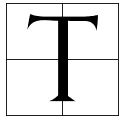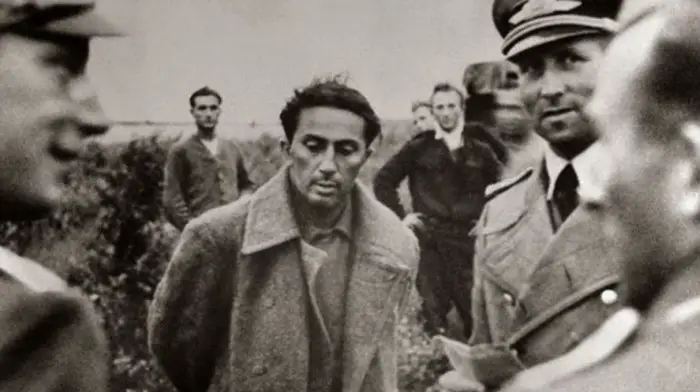 he story of Yakov Dzhugashvili, the son of one of the most powerful people on the planet during the Second World War, is truly sad. He ended up killing himself in a Nazi camp, without his father caring. Stalin only wanted power and to win the war against the Nazis so much that he stopped carrying about family.
he story of Yakov Dzhugashvili, the son of one of the most powerful people on the planet during the Second World War, is truly sad. He ended up killing himself in a Nazi camp, without his father caring. Stalin only wanted power and to win the war against the Nazis so much that he stopped carrying about family.
Soviet Faith
April 14, 1943, The Sachsenhausen Concentration Camp 30 km from Berlin held most of the Soviet soldiers captured in the first two years of the war in the east, who were quietly awaiting the fate of the victors, but also of Stalin, indirectly, which condemned them to an unjust, unequal fight, widowing them of equipment and especially of competent leaders.
It was, possibly, one of those days when the coming of the evening was announced by an almost perceptible combination of light and darkness. One evening his normal cadence was damaged by the untimely departure of an inmate from a prisoner’s shack. Seeking his death, the individual ventured outside the prisoners’ security perimeter. He was shot dead. A suicide and a conscience charged with the premature death of a young Russian artillery officer.
The Soviet Union, from 1936–1941, was a state that went from complete isolation to the status of an essential participant in World War II. Internally, Russia had been experiencing, since 1936, a period of state repression against its own citizens, led by Stalin. Estimates by British historian Robert Conquest suggest that 20 million Russian citizens, enemies of the people, suffered from the Great Purges (1936–1938) (Conquest, Robert-The Great Terror, Penguin Books Ltd, Harmondsworth, Middlesex, England, 1971, pg. 711).
The political processes hit all social categories, from Stalin’s close associates to kulaks or Soviet army officers. Most were sentenced to death or heavy punishment in Gulaguri. Of the 8 million young Russians condemned to populate the famous archipelago of Soljenițîn, estimates show that only 10% survived the experience. Along with them, during the same period, about 35,000 Red Army officers were executed, an event that beheaded, only 2–3 years before the beginning of the second world conflagration, the army’s leadership structures.
Internationally, due to the context, Russia emerges from the isolation imposed by the West and manages on August 23, 1939, to sign a non-aggression treaty with Nazi Germany, an association known in history as the Ribbentrop-Molotov Pact. This is the first step towards accepting Soviet Russia as a partner of struggle and dialogue by the international community.
Stalin’s son is a soldier on the front

The tumultuous era of internal persecution suddenly stops, in the summer of 1941, when Nazi Germany attacked the USSR and all the attention of the Soviet leaders focused on the war effort. This is where our story begins. Specifically, in Smolensk, where one of the major battles on the eastern front was fought, the battle resulted in 250,000 Russian casualties.
Among them were Yakov Dzhugashvili, the son of Catherine Svanidze and Joseph Visarionovici Stalin. Yakov was born on March 18, 1907, in Borji, Georgia, and was Stalin’s first child. Growing up in Georgia, far from the capital of the USSR, Yakov Dzhugashvili had a colder relationship with his father, a fact which he will keep throughout his life and which we will observe in the following.
Living a part of his life in a paranoid environment, along with a merciless and cruel father, it is not surprising that the dictator’s son had emotional lability, which caused him, in his youth, to attempt suicide. Young Yakovtried to kill himself for love, because his father did not agree with his engagement with a Jewish woman of questionable reputation. Escaping, the son received much appreciation from his father, who, in access of parental love, stated that “my son is not even able to commit suicide.” Inexplicably, the warm words of the father remained without an echo in the soul of the son who continued to have a tumultuous relationship with him.
Yakov Dzhugashvili, in Nazi detention
In 1941, in the early stages of the war, Yakov Dzhugashvili was captured and sent by the Germans to the Sachsenhausen concentration camp. Along with other Russian soldiers, Yakov also came in contact with Polish or British soldiers and officers. Here he learned, shortly before his death, the story of the Katyn forest massacre, as it was told by German newspapers. Some sources suggest that Yakov was marked by this event, which increased his psychological anxiety.

If at first, the Germans did not know that he was Stalin’s son, then they tried to use him to increase the efficiency of German propaganda on the eastern front. Yakov proposed to cooperate with the Nazi authorities, which he refused. However, his refusal could not block the attempt to manipulate the Germans who created propaganda leaflets suggesting that Yakov Stalin surrendered himself to rescue himself.
Several unverified stories revolve around the capture of Yakov Dzhugashvili. Some data suggest that Stalin did not remain indifferent to his son’s suffering and tried to organize two unsuccessful rescue attempts. Also, at the end of the war, Stalin tried to find out more information about Yakov’s fate, offering rewards for those who had information in this regard, some sources say. However, these stories are not covered by tangible evidence and remain just assumptions.
Other historians credit less flattering stories for the Soviet leader. In 1943, after the battle in Stalingrad, when the Soviets captured Marshal Friedrich von Paulus, it seems that the Germans proposed an exchange: the son against the marshal. Stalin’s response seems to have been negative, and the sources invoke two variants. In the first, the answer would have been “I do not change a marshal on a soldier” Yakov Dzhugashvili not only my son Yakov but my millions of sons. If you do not release them all, my son will share the same fate.
Whether there was a father behind these words was a pity for the position of a man of state or simply Stalin remained insensitive to his son’s suffering, it is unclear. Was Stalin afraid that an eventual exchange of prisoners would weaken the society’s morale at a still delicate moment or, on the contrary, refuse any negotiation in order not to be perceived as a weak leader? This, we will probably never know. As we will not know why, on April 14, 1943, a young Russian artillery officer, purposely crossed the demarcation line of the Sachsenhausen concentration camp, being killed instead by a Nazi bullet.
Avid Writer with invaluable knowledge of Humanity!
Upcoming historian with over 30 million views online.
“You make your own life.”





